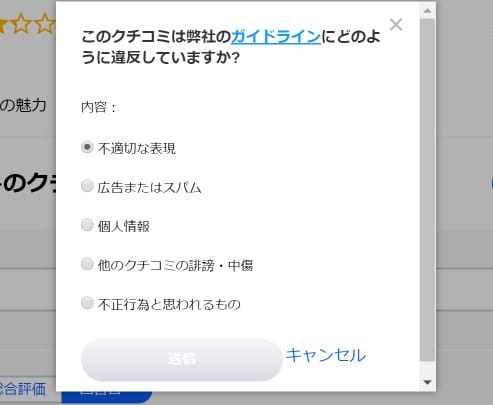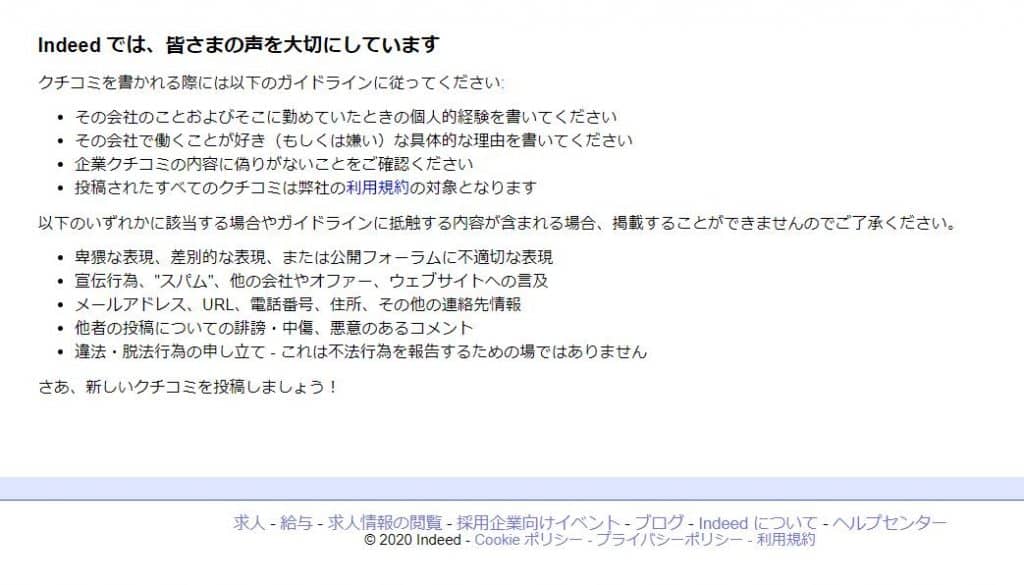What is the Method to Remove Reviews on Indeed?

On the job search engine Indeed, you can search for a multitude of job listings from job sites and company websites. Additionally, reviews about the work environment of companies are posted, allowing you to check the reviews of companies you are interested in. However, there may be instances where negative reviews are posted, such as “the store manager is taking home products from the store without permission” or “I was harassed by my boss who persistently invited me to meals or made sexual jokes”. In such cases, there is a risk that users who search for the company name on Indeed, Google, etc., will come across these reviews. Can anything be done about these negative reviews, such as removal? Also, when would it be necessary to consult with a lawyer?
What is Indeed?
Indeed allows you to search for job vacancies by entering keywords and the desired location. If you find a job you’re interested in, you can apply directly through the platform. Additionally, you can view reviews from current and former employees of the company, which can help you decide whether to apply. The first review is visible to everyone, while the title and star rating of subsequent reviews are displayed, with the content accessible upon creating a resume. If there are negative reviews, potential applicants who are searching for the company using search engines like Indeed or Google may hesitate to apply after seeing these reviews.
What are Negative Reviews Posted on Indeed?

When you search for job information on Indeed by entering a company name or keyword, relevant job information appears. In addition, you can see reviews written by current employees and former employees who have worked at the company. You can check real reviews about the company’s work environment and treatment. While it is very helpful for users who are deciding whether to apply for a job at the company to be able to see real reviews, there is also a possibility that negative reviews, such as slander, may be written. What kind of negative reviews are there in Indeed’s company reviews? Below are examples of possible negative reviews.
Review stating “The store manager is taking home the store’s products without permission”
For example, if a review is posted stating, “The store manager is taking home the store’s products without permission,” it could tarnish the company’s image and potentially deter users from applying to the company, potentially negatively impacting recruitment activities.
Review stating “I was harassed by my boss, who persistently invited me to meals and made sexual jokes”
There may be cases where a review is posted stating, “I was harassed by my boss, who persistently invited me to meals and made sexual jokes.” Such reviews, if true, are likely to be useful information for users considering applying to the company. However, there may be cases where, despite the boss behaving appropriately, the employee perceives it as harassment due to a mismatch in communication or compatibility between the employee and the boss. In such cases, if a review stating “I was harassed by my boss, who persistently invited me to meals and made sexual jokes” is posted, the company may suffer negative effects on its recruitment activities, such as a decrease in the number of applicants due to the review.
Other baseless slanderous posts and posts causing damage to reputation
On Indeed, there may be cases where, beyond the scope of company reviews, baseless rumors, slanderous reviews, and reviews causing damage to the reputation of the company, its officers, or employees are posted. Such baseless malicious posts should be deleted, just like slanderous posts and posts causing damage to reputation on anonymous bulletin boards like 5chan.
https://monolith.law/reputation/deletionrequest-for-2chand5ch[ja]
How to Report Violations of Indeed’s Guidelines
Reviews on Indeed can generally only be removed by the person who posted them. Therefore, if a negative review is posted, it may be reported as a violation of Indeed’s guidelines. To do this, log in to the Indeed site, find the review in question, and click the “Report” button located at the bottom right of the review. The following screen will appear, allowing you to select the appropriate button and report the violation.

Indeed’s review guidelines specify the criteria for reviews that cannot be posted. If a review falls under any of the following categories or contains content that violates the guidelines, it is considered ineligible for posting.
- Obscene, discriminatory, or inappropriate expressions for a public forum
- Promotional activities, “spam”, references to other companies or offers, or websites
- Email addresses, URLs, phone numbers, addresses, or other contact information
- Defamation or malicious comments about other posts
- Claims of illegal or unlawful activities

According to these guidelines, a post such as “The store manager is taking store merchandise home without permission” could be considered a “claim of illegal or unlawful activities”, and thus could be reported as a violation. However, it is not explicitly stated whether a review will be removed after a violation report is made.
Examples of Removal Requests Based on Illegality
When a review is posted that could potentially damage the social reputation of a specific individual or company, it is necessary to consider whether it constitutes defamation (infringement of the right to honor). Defamation is the act of presenting facts that could damage a person’s social reputation in a setting where it could potentially reach an unspecified number of people. So, under what circumstances does defamation occur? The requirements for defamation are as follows:
- Publicly
- Presenting facts
- Defaming a person’s honor
For example, if a statement such as “I was subjected to sexual harassment, such as being persistently invited to meals by my boss or being told sexual jokes” is written, then:
- The statement “I was subjected to sexual harassment, such as being persistently invited to meals by my boss or being told sexual jokes” has a specific meaning,
- Sexual harassment is subject to certain legal regulations, and being perceived as a company that neglects to take measures against sexual harassment is disadvantageous for the company,
- The company in question would argue that it has established measures against sexual harassment and is striving to prevent it.
However, even if the requirements for defamation are met, defamation does not occur if the following conditions are met, so caution is necessary.
- There is public interest
- There is public benefit
- It is true or its truthfulness is recognized
Not only the above example, but also other slanderous reviews and rumor damage reviews need to be examined to see if they constitute defamation. However, deletion negotiations based on such claims and legal arguments may be difficult without a good understanding of the law. In such cases, consulting with a lawyer with extensive knowledge can increase the likelihood of smooth deletion. The requirements for defamation are explained in detail in the article below.
https://monolith.law/reputation/defamation[ja]
Removal by Provisional Disposition
If a review is not removed even after reporting a violation, we will request removal through the court. Company reviews on Indeed can be removed not only through litigation procedures but also by provisional disposition. Litigation can take a long time until a judgment is rendered, usually about 3-12 months, and in some cases, it can drag on for years. On the other hand, provisional dispositions often conclude within 2-3 months from the time of consultation to removal if you consult with a lawyer who has expertise in reputational damage.
The provisional disposition is carried out in the following flow.
- Filing for provisional disposition
- Examination (a procedure similar to oral argument)
- Payment of security deposit
- Issuance of provisional disposition order
- Execution
When carrying out a provisional disposition, it is necessary to prepare evidence to substantiate your legal claim. For example, in the case of “being persistently invited to meals by a supervisor or being told sexual jokes, etc.”, you would need to prepare:
- Memos or emails documenting the interaction between the supervisor and the poster
- Testimony from employees in the same department
- Sexual harassment prevention manual
These would be submitted as evidence, and you would argue that “our company has taken sufficient measures to prevent sexual harassment, and the supervisor’s approach to the employee in question was appropriate.” However, it may be difficult to make such a claim on your own without consulting a lawyer. For more details on the removal provisional disposition, please refer to the article below.
https://monolith.law/reputation/provisional-disposition[ja]
Identifying the Poster through Provisional Disposition

If there are continuous and numerous posts of groundless defamation or rumor damage with the purpose of harassment, you can request the disclosure of sender information by hiring a lawyer. The request for disclosure of sender information is a procedure based on Article 4, Paragraph 1 of the Japanese Provider Liability Limitation Act. Through this procedure, you can request the disclosure of information to identify the malicious poster, such as IP address, name, and address. There may be cases where someone who had a dispute with a company while working there posts defamation or rumors on Indeed. In such cases, if the poster’s IP address is known, it may be possible to identify the poster. The flow of the sender identification procedure is as follows:
- Request for information disclosure to the content service provider
- Application for provisional disposition for disclosure of sender information
- Identify the transit provider
- Application for provisional disposition to prohibit deletion of sender information to the transit provider
- Filing a lawsuit for disclosure of sender information
- Identifying the sender (address, name, etc.) based on the court’s judgment
If you can identify the poster of malicious reviews such as rumors through the above sender identification procedure, you can claim damages from the poster for the lawyer’s fees and consolation money involved in the identification. For more details on the request for disclosure of sender information, please refer to the article below.
https://monolith.law/reputation/disclosure-of-the-senders-information[ja]
Summary
Indeed is a highly convenient site where you can search for a multitude of job listings and view authentic company reviews. However, there is also the possibility that defamatory reviews or reviews intended to harm a company’s reputation may be posted. In the face of such malicious posts, it may be advisable to report violations based on Indeed’s guidelines, request deletion through the courts, or proceed with identifying the poster. Legal claims such as defamation can be difficult to handle individually without the assistance of a lawyer. If you are troubled by defamatory reviews or reviews damaging your reputation, consider consulting with a lawyer who has extensive knowledge in this area.
Category: Internet





















